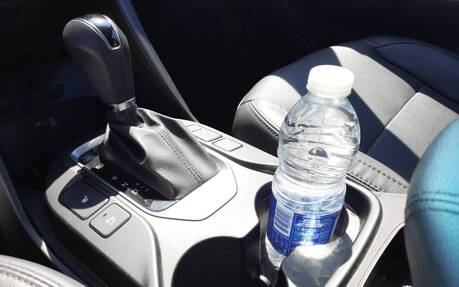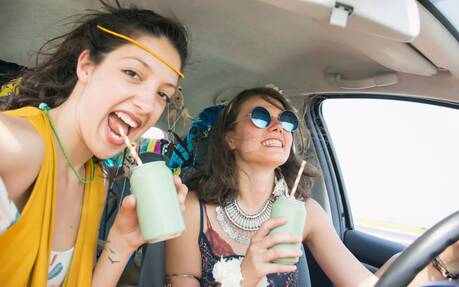Study Claims Dehydration Can Be as Dangerous as Drunk Driving
With summer in full swing and heat waves hitting parts of the country in succession, proper hydration is a must.
Of course, we’re not talking about alcoholic beverages, especially if you plan to drive afterwards. But get this: according to a new British study posted on ScienceDirect, thirsty drivers can be as dangerous as drunk drivers.
- Also: Study: Some Bad Drivers are “Zoom Zombies”
- Also: Study: Drivers in Their 70s Have Lower Crash Rates Than Those Aged 35-54
As a reminder, an adequate daily intake is about 3.5 litres of fluids for men and about 2.5 litres of fluids for women. A survey from a few years ago revealed that just over half of drivers drink less than that.
Reseachers at Loughborough University in the U.K. conducted an experiment with 11 adult male participants using a driving simulator. They found out that even mild hypohydration produced a significant increase in minor driving errors—such as lane drifting or late braking—during a prolonged, monotonous drive.

The increase reported was similar to that observed following the ingestion of an alcoholic beverage resulting in a blood alcohol content of approximately 0.08 percent—the current legal driving limit both in the U.K. and Canada—or while sleep deprived.
These findings are backed up by Jacob Hatch, author and founder of Hydration Anywhere, who stated in a recent article that “losing 1.5 percent of water causes impairment in tasks that require focus, motor coordination, and quick decision-making.”

Tips to Avoid Dehydration While Driving
If you are dehydrated, you will likely experience symptoms like fatigue, dizziness, muscle cramps, loss of focus/concentration or headaches. This could have a big impact on your driving ability.
When you’re taking a road trip or need to travel long distances, remember to drink water before your journey, keep a water bottle handy so you can rehydrate on the move, and take regular breaks where you can stretch and fuel up.
Also, some experts say you should avoid excessive air-conditioning usage, as this can have a drying effect on the air inside the cabin.
